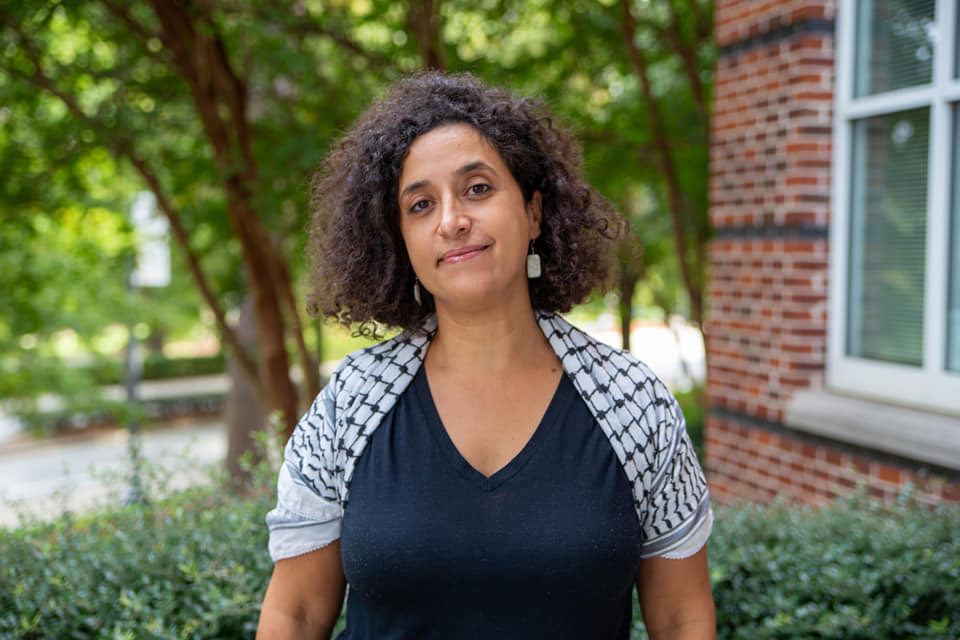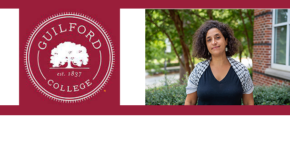 What can be done to help refugees in this country?
What can be done to help refugees in this country?
Diya Abdo, professor of English at Guilford College, delves into this question.
Diya Abdo is a Professor of English at Guilford College. A second-generation Palestinian refugee born and raised in Jordan, Dr. Abdo’s teaching, research, and scholarship focus on Arab women writers and Arab and Islamic feminisms. She has also published poetry, fiction, and creative nonfiction. Her book AMERICAN REFUGE: True Stories of the Refugee Experience is forthcoming from Steerforth Press in 2022. In 2015, Dr. Abdo founded the Every Campus A Refuge (ECAR) initiative which advocates for housing refugee families on college and university campus grounds and supporting them in their resettlement. The flagship chapter at Guilford College, now one of several ECAR campuses, has hosted 66 refugees so far. The College will begin hosting 20 Afghan evacuees in January, 2022. Dr. Abdo is the recipient of the J.M. Kaplan Fund’s Innovation Prize (2021), Campus Compact’s Thomas Ehrlich Civically Engaged Faculty Award (2019), Gulf South Summit’s Outstanding Service-Learning Collaboration in Higher Education Award (2017), and The Washington Center’s Civic Engagement in Higher Education Award (2017). In 2018, she was named a finalist in the Arab Hope Makers Award. She has been making presentations about ECAR far and wide, including at the United Nations Headquarters in New York. She lives in Greensboro, NC with her partner and two daughters. To learn more, visit www.everycampusarefuge.net or see Dr. Abdo’s TEDtalk here.
Forthcoming Book — American Refuge: True Stories of the Refugee Experience
Resettlement Campuses are the Future of Higher Education
Higher education is transforming the landscape of refugee resettlement in this country. Recent years have seen America’s refugee resettlement capacity decimated: dozens of agency offices have closed or laid off staff, and lower refugee admissions have damaged community-based infrastructures. America needs to rebuild quickly to support increased refugee admissions and the thousands of Afghan evacuees already here. Refugees also face many barriers as they navigate complex health and social services without adequate finances or social support, and all while coping with trauma. They lack the credit background, social security numbers, and financial means necessary to secure safe and affordable housing upon arrival. Founded in 2015, Every Campus A Refuge revolutionizes refugee resettlement and enhances the educational, research, and service missions of colleges and universities. This higher education initiative partners colleges and universities with local resettlement agencies to provide newcomers with free temporary housing on campus as well as community support. Campuses are small cities with everything needed — housing, cafeterias, clinics, career services, and plenty of human resources — to facilitate refugee access to services beyond the usual resettlement process. Students, faculty, staff, and community members are vetted and trained as culturally-responsive volunteers to provide case management support. The result is a softer landing and more dignified beginning for newcomers. The flagship campus has hosted 66 refugees thus far; other campuses have joined the effort. Research conducted shows a powerful impact: refugees reported a greater sense of financial stability and belonging while student volunteers reported increased knowledge and understanding of refugee and immigrant issues. Guided by best practices and community-identified priorities, campus-based refugee support could significantly increase America’s resettlement capacity and engage its students in meaningful credit-bearing opportunities. If only 10% of America’s universities participated, thousands of refugees would receive integration support grounded in dignity and agency. Will your campus be the next refuge?


Comments
One response to “Diya Abdo, Guilford College – Resettlement Campuses are the Future of Higher Education”